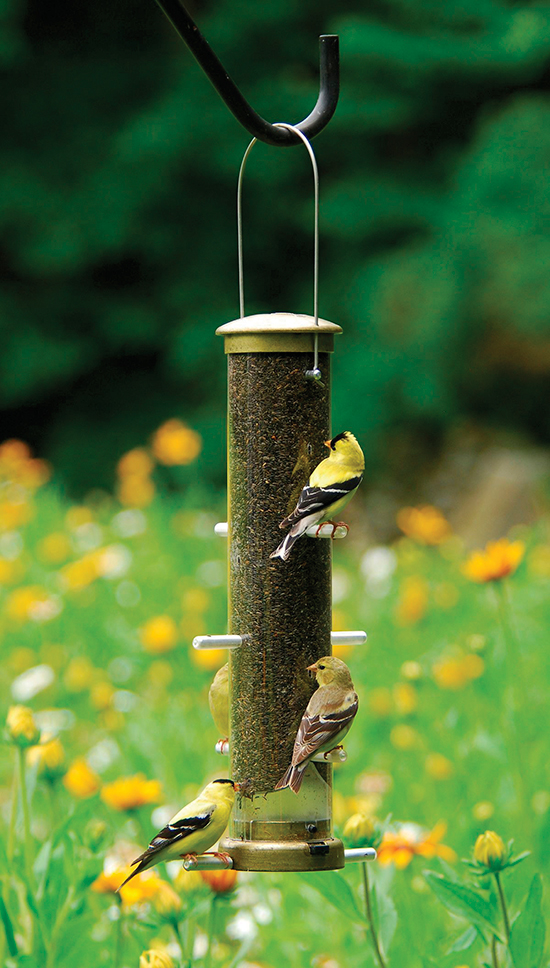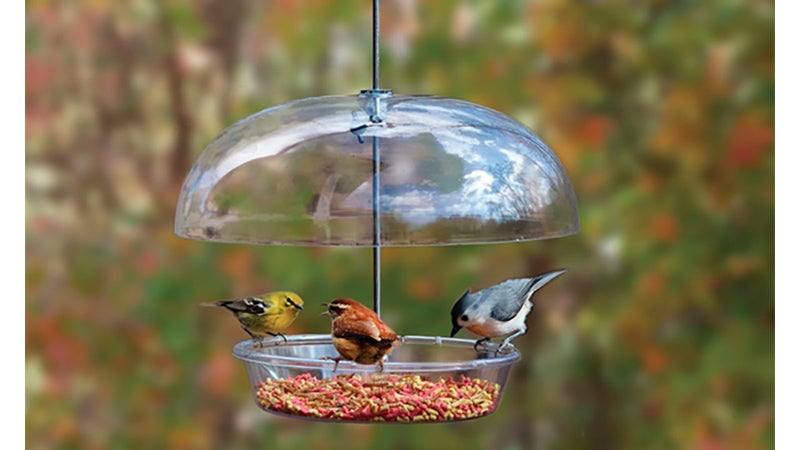Attract more birds to your backyard
Published 12:30 pm Sunday, July 11, 2021
|
Getting your Trinity Audio player ready...
|
(Family Features) With all the constraints people lived through in 2020, many turned to their own backyards – nature, in particular – for hope, solace, wonder and even entertainment. Despite the worldwide crisis, nature’s normalcy remained intact; flowers continued to bloom, bees continued to pollinate and birds continued to fly and forage food.
Feeding birds can be enjoyable for any age group and provide stress relief for all who partake. A University of Exeter study, focused on nature’s impact on humans in suburban and urban areas, found lower levels of depression, anxiety and stress were associated with the number of birds people saw during afternoons at home. The benefits of birdwatching come from seeing lots of birds – quantity not “quality” – the study found.
People “felt relaxed and connected to nature when they watched birds in their gardens,” researchers said. These feelings increased with the level of bird feeding in the yard. For millions working and schooling from home, this stress reduction was an unintended bonus.
Data from 2020 shows sales of bird feed, feeders, nesting boxes and bird houses spiked as interest in backyard birds soared while people spent more time at home.
Interest in birding isn’t slowing down. If you haven’t tried attracting birds to your backyard, now is a perfect opportunity to start. The experts at Cole’s Wild Bird Products Co. offer these bird feed and feeder basics to attract more birds to your backyard.

Feeders
A variety of bird feeder types placed at different heights attract more birds than one feeder featuring one seed type. Start with two feeder types that accommodate most feed options. Bowl feeders serve not only seeds but also dried mealworms, fruit and suet. An option like Cole’s Bountiful Bowl Feeder comes with an adjustable dome cover you can raise or lower to prevent larger birds and squirrels from getting to food and protect it from rain.
Traditional tube feeders are all-purpose options for bird feeding, especially for small birds that cling. For example, the Terrific Tube Feeder is made with state-of-the-art materials to prevent warping and discoloration and includes a quick-clean, removable base to make cleaning fast and easy. Just push a button and the bottom of the feeder pops off for easy access to the inside. Rinse the feeder with soapy water, dunk it into a water-bleach solution at a concentration of 9-to-1, rinse, dry and reattach the bottom. Regular cleaning of feeders is essential for preventing mold, germs and disease.
Popular Foods
Birdseed: Not all birdseed is created equal. Look for quality blends without cheap filler like red millet and oats. All-natural seed containing no chemicals or mineral oil is safe and more appealing to birds. Top seed picks include all-natural black oil sunflower and Cole’s “Hot Meats” (sunflower meats infused with habanero chili peppers that birds love and squirrels dislike). Or an option like Special Feeder blend, packed with favorites including black oil sunflower, sunflower meats and pecans, attracts the greatest number of wild birds. Offering a wide variety, Cole’s feed is researched and specifically formulated to attract certain bird species, the largest number of birds and the greatest variety of birds.
Insects and Worms: A healthy, lush lawn is one of the best ways to feed birds that prefer insects and worms. You can supplement birds’ diets by serving dried mealworms in a packaged variety that’s easier to feed and less messy than live mealworms. Mealworms are packed with energy and contain essential nutrients, fat and protein.
Fresh Fruit: Apples, orange halves and bananas are favored fruits.
Suet: Perfect for insect-eating birds, suet is a high-fat food that provides abundant calories, rich nutrition and is a high-energy treat.
Using the right feeders and high-quality feed can enhance your backyard and entice more birds, bringing stress relief and enjoyment. For more information on attracting birds to your backyard, visit coleswildbird.com.
SOURCE:
Cole’s Wild Bird






